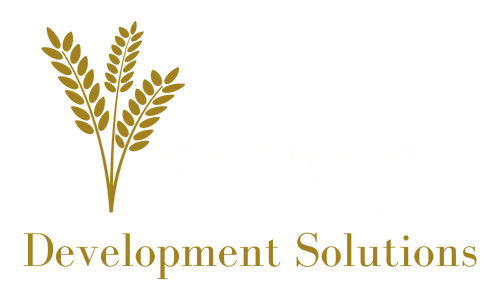

Our Solutions for Education
Our Solutions for Education
West Development Solutions offers over 75 different professional development solutions for educators, faculty, and staff. Training solutions are tailored to the specific organization we are working with to maximize the impact of these tools and skills.
West Development Solutions offers over 75 different professional development solutions for educators, faculty, and staff. Training solutions are tailored to the specific organization we are working with to maximize the impact of these tools and skills.
Our Educational Programs
Our Educational Programs
Here are some examples of a few professional developments we do with faculty and staff:
Developing Emotional Intelligence
Gain revealing insights into what compels people to act the way they do. Work more effectively with others—even difficult, high-strung personalities. Defuse tense situations, mediate conflicts, and improve relationships. Learn to keep your emotions in check and help others do the same.
Approaching Diversity Together
Experiencing diversity is a part of living in a civilized society. Difference does not equal a right way and a wrong way, it is variety that can lead to a common goal. Understanding the various forms of diversity makes for a better company and world in general.
Participants explore implicit bias as it pertains to approaching diversity. Recognize why implicit bias matters in our day-to-day lives. Determine what we can do about our own implicit biases. Explore ways of handling conflicts regarding diversity.
Communicating with Challenging Parents
While many interactions with parents will be pleasant and positive, you inevitably will have to interact with parents who are difficult in some way. Keep in mind that just as all of your emotions communicate to you so you can assess your situation, this is also the case for the challenging parent. Regardless of why they are angry or upset, their feelings are valid. Understanding the different reasons behind their behavior can help you to resolve their difficulty.
De-escalation Strategies: Managing Student Behavior (Social Intelligence)
Whether you work in education, healthcare, human services, business, or any field, you might deal with angry, hostile, or noncompliant behavior every day. Your response to defensive behavior is often the key to avoiding a physical confrontation with someone who has lost control of their behavior. In this PD, we will discuss knowing how to respond appropriately, effective means of communicating, and tips to de-escalate student behavior.
Conflict Resolution Workshop
Wherever two or more people come together, there is bound to be conflict. This course will give participants a seven-step conflict resolution process that they can use and modify to resolve conflict disputes of any size. Your participants will also be provided a set of skills in solution building and finding common ground.
Participants learn crucial conflict management skills, including dealing with anger and using the Agreement Frame. Dealing with conflict is important for every organization no matter what the size. If it is left unchecked or not resolved it can lead to lost production, absences, attrition, and even lawsuits.
Here are some examples of a few professional developments we do with faculty and staff:
Developing Emotional Intelligence
Gain revealing insights into what compels people to act the way they do. Work more effectively with others—even difficult, high-strung personalities. Defuse tense situations, mediate conflicts, and improve relationships. Learn to keep your emotions in check and help others do the same.
Approaching Diversity Together
Experiencing diversity is a part of living in a civilized society. Difference does not equal a right way and a wrong way, it is variety that can lead to a common goal. Understanding the various forms of diversity makes for a better company and world in general.
Participants explore implicit bias as it pertains to approaching diversity. Recognize why implicit bias matters in our day-to-day lives. Determine what we can do about our own implicit biases. Explore ways of handling conflicts regarding diversity.
Communicating with Challenging Parents
While many interactions with parents will be pleasant and positive, you inevitably will have to interact with parents who are difficult in some way. Keep in mind that just as all of your emotions communicate to you so you can assess your situation, this is also the case for the challenging parent. Regardless of why they are angry or upset, their feelings are valid. Understanding the different reasons behind their behavior can help you to resolve their difficulty.
De-escalation Strategies: Managing Student Behavior (Social Intelligence)
Whether you work in education, healthcare, human services, business, or any field, you might deal with angry, hostile, or noncompliant behavior every day. Your response to defensive behavior is often the key to avoiding a physical confrontation with someone who has lost control of their behavior. In this PD, we will discuss knowing how to respond appropriately, effective means of communicating, and tips to de-escalate student behavior.
Conflict Resolution Workshop
Wherever two or more people come together, there is bound to be conflict. This course will give participants a seven-step conflict resolution process that they can use and modify to resolve conflict disputes of any size. Your participants will also be provided a set of skills in solution building and finding common ground.
Participants learn crucial conflict management skills, including dealing with anger and using the Agreement Frame. Dealing with conflict is important for every organization no matter what the size. If it is left unchecked or not resolved it can lead to lost production, absences, attrition, and even lawsuits.
Want to know more about how we can help you and your organization?
Want to know more about how we can help you and your organization?
© 2023 Monk Marketing Advising
© 2023 Monk Marketing Advising